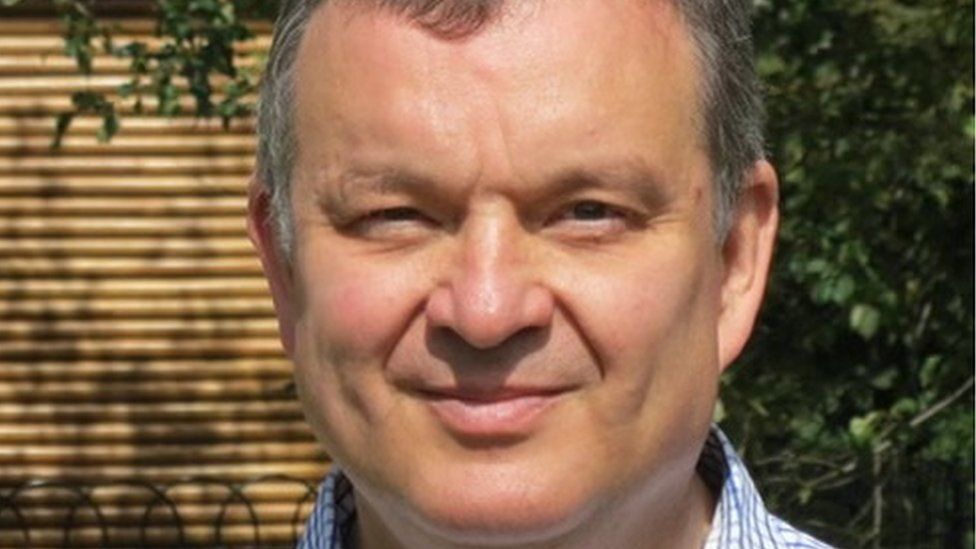ARTICLE AD BOX
 Image source, Dan Kaszeta
Image source, Dan Kaszeta
A chemical weapons expert who had his invitation to speak at a Ministry of Defence (MoD) conference withdrawn after his social media was vetted has received a government apology.
Dan Kaszeta was disinvited from the event in April, but said he was not told which posts had led to the move.
The conference hosts have now offered their "sincere apologies" and blamed a "misapplication" of guidance.
"The fact that a policy was applied to me in error does not address the issue that such policies do actually exist across government," the nerve agents expert said.
Mr Kaszeta, an American who spent 12 years advising the White House, has been based in the UK since 2010.
He was invited in January to address the 25th annual Chemical Weapons Demilitarisation Conference in London, which aimed to "bring together international experts and promote collaboration to achieve a future free from chemical weapons".
But in April, he received an email - seen by the BBC's Newsnight - which informed him that a check of his social media accounts, carried out under Cabinet Office rules introduced in 2022, had "identified material that criticises government officials and policy".
"It is for this reason and not because we do not value your technical insight, that I'm afraid that we have no choice and must cancel your invitation to the CWD conference," it added.
Mr Kaszeta told Newsnight in May he believed this was because he had spoken out on a range of issues, criticising asylum policy and Brexit.
The Ministry of Defence said checks on people speaking at government-organised events ensured a balanced discussion. The email stressed: "The vetting is impartial and purely evidence-based."
Mr Kaszeta insisted he would have spoken only about his areas of expertise - chemical, biological and radiological weapons and warfare - and would not have tackled policy matters.
He described the withdrawal of his invitation as an "outrage against free speech".
'Blacklisted'
On Wednesday, he published a letter from the Defence Science and Technology Laboratory (DSTL), an MoD agency which organised the conference, offering him its "sincere apologies" for an "error".
"The decision was incorrectly taken following informal checks of your social media posts," the letter said, blaming a "misapplication" of Cabinet Office guidance applying only to Cabinet Office staff events.
"DSTL would not rescind an invitation of a speaker on the basis that the speaker had criticised government policy.
"DSTL has always welcomed individuals to the CWD Conference who provide constructive challenge to UK Government policy."
A review was now being carried out of DSTL processes for event management, it added.
Liberal Democrat parliamentary candidate for the Cities of London and Westminster constituency Edward Lucas, where Mr Kaszeta lives, had highlighted his case.
He also said bigger questions remained. "This belated apology just digs an even bigger hole for the government. How many other experts have been blacklisted under these policies? Will they get apologies too?" he said.
"Any guidance on checking and banning outside speakers at government events should be lawful and transparent, and administered fairly and accountably."
Partner Tessa Gregory said: "Vetting speakers' social media and placing greater scrutiny on those who are critical of the government plainly undermines the impartiality of the civil service, runs contrary to data protection laws and is likely to lead to people being discriminated against because of their political or philosophical beliefs in breach of the Human Rights Act and the Equality Act."

 1 year ago
23
1 year ago
23








 English (US)
English (US)